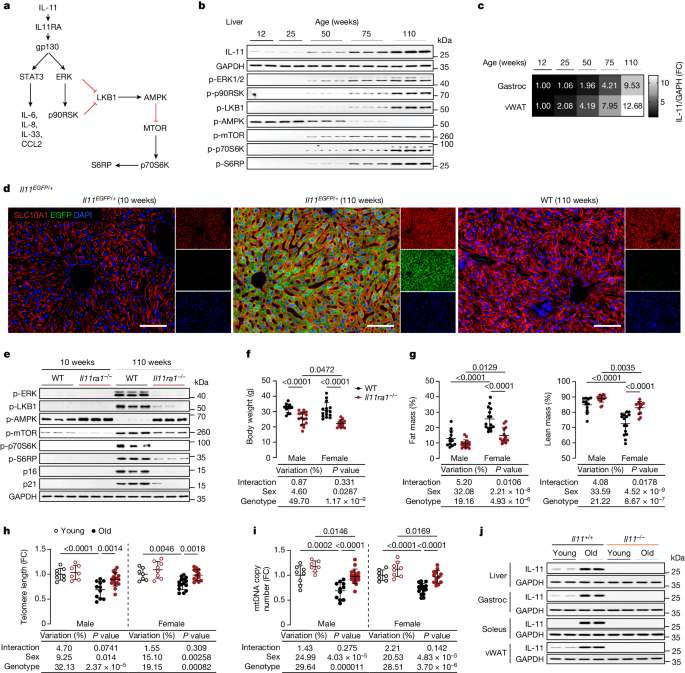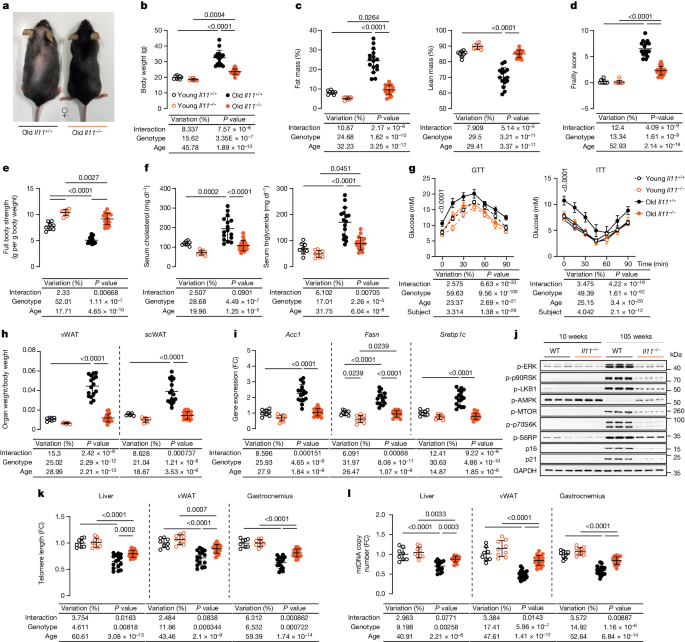Optimizing longevity: the promising role of isoleucine
Recent advances in aging research have highlighted a fascinating link between restricting certain amino acids and a longer, healthier life. Among these amino acids, isoleucine, essential but potentially problematic in excess, stands out for its effects on longevity and metabolic health.
Fig. 1: The IL-11–ERK–mTORC1 signaling module is upregulated with aging and associated with senescence and metabolic decline. *Nature Science

What is isoleucine and why is it important?
Isoleucine is one of the essential amino acids involved in protein synthesis, energy regulation, and cellular metabolism. It is found in protein-rich foods such as meat, eggs, dairy products, and soy. While it is essential for the body to function properly, excessive consumption may accelerate certain aging-related mechanisms, as demonstrated by several rodent studies.
A promising discovery in mice
A recent study conducted by the University of Wisconsin-Madison reduced the intake of isoleucine in the diet of mice by 66%. The results were dramatic: male mice saw a 33% increase in life expectancy, while females saw a more modest gain (7%). The benefits didn't stop there: increased muscle mass, improved blood sugar control, delayed hair loss, and even a reduced risk of tumors were observed in these animals. Intriguingly, these mice consumed more calories while maintaining a healthy weight, suggesting a profound effect on energy metabolism.
Fig. 2: Il11-deleted female mice are protected from age-associated obesity, frailty, and metabolic decline. *Nature Science

The implications for humans
Although these results are encouraging, researchers remain cautious about their direct application to humans. Since the human diet is more complex, severe isoleucine restriction could lead to deficiencies. However, these findings open the door to innovative solutions, such as pharmaceutical interventions targeting the effects of isoleucine. This would make it possible to replicate the observed benefits without compromising nutritional balance.
Towards targeted nutrition for healthy aging
This work confirms the major impact of nutritional quality on aging. Further research is needed to determine the specific dietary adjustments that could optimize longevity in humans. In the meantime, maintaining a balanced diet remains essential to support good long-term health.
These results reinforce the idea that optimizing longevity lies not only in drastic interventions but also in a better understanding of the nutrients we consume on a daily basis. For those seeking to explore innovative solutions in this area, these studies open up exciting prospects for a longer and healthier life.
*Sources: Futura Sciences, Techno Science, Cell Metabolism, Nature Science*
